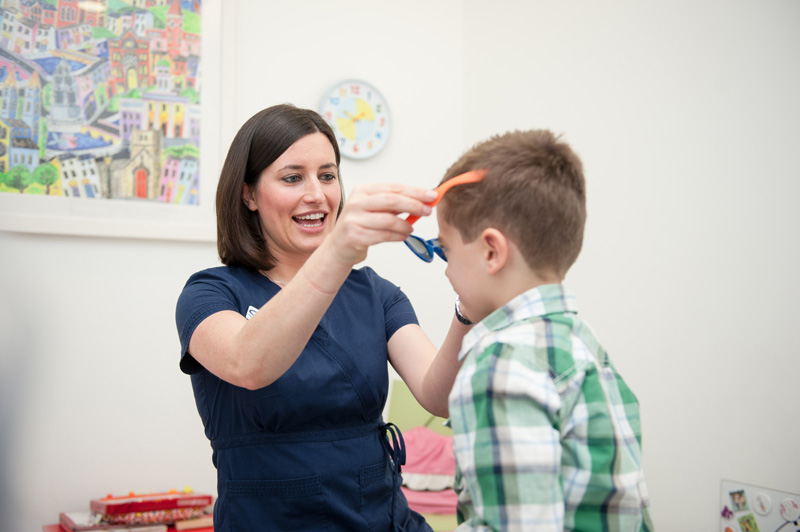

Starting early with dental care is an important step on the road to teaching young children healthy oral habits that will last them a lifetime.
Children should see a dentist by aged 2 or once the first few baby teeth erupt. This will introduce the child to the dental setting in a relaxed and calm manner. At the first visit the child’s dental development is assessed, risk factors that can lead to the development of tooth decay identified and prevention advice will be explained to the child’s parents. The first time a child visits a dentist should not be when they have a toothache…. Prevention is better than the cure!
Use a soft bristled brush that is age appropriate in size. Electric toothbrushes are available for children but should only be used after consulting with the dentist.
Twice a day, after breakfast and immediately before bed (water only after night-time brushing).
Two minutes please!! Make brushing time more fun, use a timer or play a song at Aquafresh fun ideas for kids.
Parents should brush a child's teeth up to the age of 7.
Children under 2 years: Brush teeth but NO toothpaste
Children aged 2-6 years: Toothpaste (1000ppm Fluoride)
Children older than 6 years: Toothpaste (1400ppm Fluoride)
Encourage children to spit out the toothpaste rather than rinsing. It is beneficial for some toothpaste to stay on the teeth to help fight tooth decay
Toothpaste should be kept out of reach of children and they should never be allowed eat it from the tube.
Children should only use a mouthwash if recommended by your dentist. It is not a substitute for correct tooth-brushing. Mouthwash should be used at a different time to brushing, for example after school.
Cleaning between a child's teeth with floss should start when the toothbrush no longer fits between the teeth. Brushing alone will not remove all the plaque from your child's teeth. Flossing should be carried out once a day after brushing.
Flossing Steps:
A child should have a well-balanced diet to maintain good oral and general health. This should include a healthy breakfast, lunch and dinner and 2 snacks Milk and water are the recommended drinks to support healthy tooth development Juices and sugary drinks should be avoided and never taken between meals Acidic fruits such as apples and oranges should be eaten at meal times and not as asnack.
Not every day...
The treat should be eaten immediately after a meal
Avoid chewy, sticky treats that take a long time to eat and clear in the mouth
If your child is having juice as a treat it should be at meal times only
Use the food pyramid link below to help you plan healthy meals and snacks for your child: Healthy Food for All - preschool guidelines